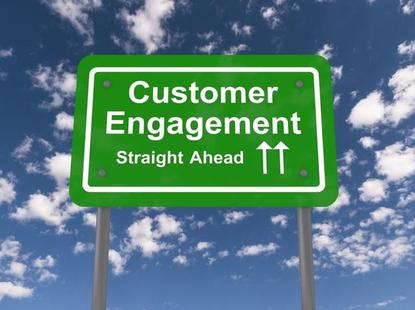Customers turned off by inaccurate personalisation and bad customer service
- 25 August, 2021 15:15

Ever-increasing competition in products and services means brands must appeal to customers on every level to maintain their loyalty.
Accurate, relevant personalisation can win hearts but many brands are getting it wrong, according to research by Movable Ink, while a new Freshworks report shows many brands are pushing customers away with customer service that is slow, solution oriented or lacks personalisation.
The new Freshworks survey found more than half of Australians are disappointed with customer service, with most (56 per cent) saying they don’t believe service matches brand image. The main complaints (35-38 per cent) were that it takes too long to speak to someone, that customer queries get passed around in circles, that the responses are scripted and automated, and that responses lack a resolution.
First-class customer service does boost customer loyalty, as Qualtrics XM Institute found last year when 78 per cent of its respondents said service influenced their relationship with a brand.
Customer service failures also send customers to competitors. More than two in five Australians (43 per cent) in the Freshworks survey stopped buying from a company as a result of its communications during the pandemic. One in 10 found a competitor with a more effective response during the pandemic. One fifth (19 per cent) also stopped dealing with a company when call wait times became too long. A similar number went elsewhere when they could not get a response. ‘Insensitive communications’ also prompted 14 per cent to stop buying.
“The take-away for companies is that they can no longer separate their product from the customer experience; instead, it is a business imperative for companies to make it easy to delight their customers through thoughtful, easy and speedy interactions that reflect customer values,” said Freshworks CMO, Stacey Epstein.
Meanwhile, more than two thirds (68 per cent) of consumers participating in a Movable Ink survey of 1000 Americans said they're likely to remain customers if a brand engages and builds a personal relationship with them. However, the report also found personalisation is easy to get wrong and its influence diminishes as people age.
According to the report, produced in partnership with Lewis Research, nearly three quarters of 18 to 34-year-olds are more likely to buy off the back of a personalised experience. The influence of personalisation goes down to half of 55 to 64-year-olds, and it's even less for people over 65.
The survey found similar consequences from poor personalisation in the US to Freshworks’ Australian data. When personalisation in brand communications is wrong or inaccurate, for instance, most Americans take some action ranging from calling customer service to complain (27 per cent), to unsubscribing from emails (26 per cent) or cancelling a service. Fifteen per cent also never buy from that company again, while 9 per cent delete the app from their phone (9 per cent). Others, ranging from 9 to 5 per cent, spread the unpopular story by word of mouth, through a bad review or by relating the experience on social media.
However, Freshworks found only 14 per cent of Australians expect any personalisation and even fewer (9 per cent) did not expect to be impressed by communications at all. Yet more than half (55 per cent) do expect brands to know about their values and brand communications to take this knowledge into account. More than half (52 per cent) want companies to know more about us.
The SaaS company said low expectations and the chasm between lofty brand image and low quality customer service, including personalisation, is an opportunity waiting to be filled by brands prepared to lift service higher.
For example, 71 per cent of consumers will exchange their information for faster, better personalised and values-driven customer experiences.
Of those ready to share personal data in return for better experiences, 40 per cent will give contact details, 27 per cent will hand over previous browsing or buying behaviour, 22 per cent will part with relationship data, 20 per cent will share an address and 16 per cent will share values they care about.
Both Movable Ink and Freshworks found email is still the preferred communication mode. Movable Ink’s survey also showed email marketing about sales or other promotions as most strongly preferred (58 per cent), followed by emails on new products or services (37 per cent).
Freshworks’ research found nearly three quarters of Australians (73 per cent) would rather speak to a person than use automated self-service. When using self-service options, 57 per cent missed being able to speak to someone and 54 per cent prefer companies to offer a smart combination of human service and self-service.
Read more: customer engagement difficult during Covid
You can also follow CMO on Twitter: @CMOAustralia, take part in the CMO conversation on LinkedIn: CMO ANZ, follow our regular updates via CMO Australia's Linkedin company page

